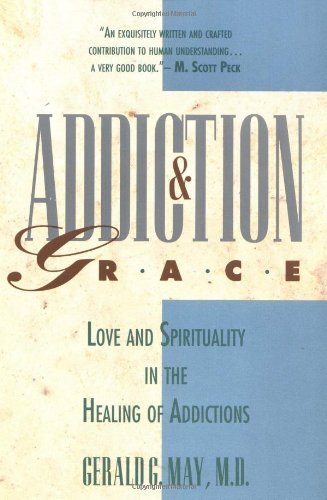What do you think?
Rate this book


208 pages, Paperback
First published January 1, 1988
Addiction is any compulsive, habitual behavior that limits the freedom of human desire. It is caused by the attachment, or nailing, of desire to specific objects. The word behavior is especially important in this definition, for it indicates that action is essential to addiction. As I have indicated, attachment of desire is the underlying process that results in addictive behavior.
...no addiction is good; no attachment is beneficial. To be sure, some are more destructive than others; alcoholism cannot be compared with chocolate addiction in degrees of destructiveness, and fear of spiders pales in comparison to racial bigotry. But if we accept that there are differences in the degree of tragedy imposed upon us by our addictions, we must also recognize what they have in common: they impede human freedom and diminish the human spirit.
It is surely good for parents to care for their children and for people to be kind to one another and to seek God. It would be wonderful if we could make a habit of such activities. But there is a vast difference between doing these things because we freely choose and doing them because we are compelled. In the first case, the motivation is love; in the second, slavery.
When the community surrounding an addicted person tries to help in any way that does not support ending the addiction, it will wind up supporting the addiction instead.
From a more specifically spiritual viewpoint, we naturally seek the least threatening ways of trying to satisfy our longing for God, ways that protect our sense of personal power and require the least sacrifice. Even when we know that our hunger is for God alone, we will still be looking for loopholes—ways of having our cake and eating it too, ways of maintaining our attachments to things and people while simultaneously trying to deepen our intimacy with God. We seek compromise not because we are evil or conniving, but because of the way we are made; we naturally look for the least painful ways of living.
the crucifixion itself demonstrated the extent to which God would go to liberate people from their attachments. Jesus proclaimed that there was no greater love than to lay down one’s life for one’s friends, and then he proceeded to do just that. Finally, and most important of all to the Christian faith, Christ’s resurrection proclaimed absolute and unquestioned victory over attachment itself, over its consequences, and over its causes.
To put it bluntly, God became incarnate to save the addicted, and that includes all of us.
Many other reasons exist for our lack of appreciation of God’s constant love. Sometimes the activity of grace so transcends our understanding that it becomes essentially invisible to us. We cannot notice God’s loving presence because it is too numinous, too elusively mystical to be perceived. There are also occasions when we cannot appreciate grace because we really do not want to. If God has not lived up to our expectations of how a true lover should act, for example, we may stifle our awareness because of anger or because we want to protect ourselves from being hurt again. And sometimes, as I have indicated, God actively hides grace from us. But of all the possible explanations for our lack of awareness of grace, there is no possibility of God being indifferent, or falling in love with someone else instead of us, or pouting because of some insult, or being otherwise elsewhere attached.
Living into the mystery of grace requires encountering grace as a real gift. Grace is not earned. It is not accomplished or achieved. It is not extracted through manipulation or seduction. It is just given. Nothing in our conditioning prepares us for this radical reality. Some would say that early childhood experience with our parents is important in determining how we come to accept grace in later life. If we had loving, trustworthy parents rather than rejecting or unreliable ones, we would grow up more willing to accept God’s grace as a gift. I do not think this is so. We all have trouble accepting the radical giftedness of God’s grace, no matter what our childhood experience.